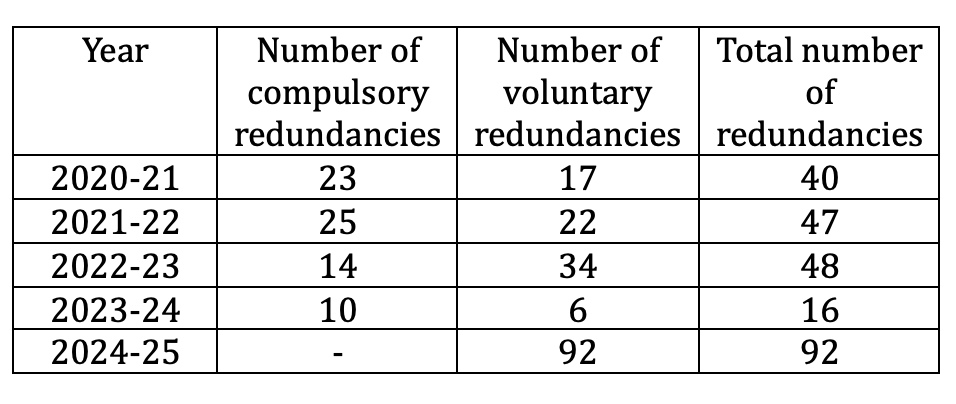LBWF’s recent voluntary redundancy programme: grass roots staff culled, even as ‘senior managers’ mushroom in number
In November 2023, LBWF introduced a voluntary redundancy programme, which, it claimed, was necessary to help bridge an overall funding gap forecast to reach £26.7m. in the next few years.
Subsequently, little if anything more has been said about this in public, but a recent Freedom of Information response reveals some of the details.
Altogether, 92 staff have accepted the terms offered to them, and left the council’s employment.
The net savings achieved (that is saving taking into account costs such as the redundancy packages, admin, etc.) are ‘anticipated’ to be £4.2m down to 2025-26.
Three observations are relevant. First, though LBWF has imposed redundancies before, the latest programme is unusually hard hitting, as the following table demonstrates:
Second, of those made redundant, most have come from the lower pay grades, with only 15 of the 92 drawn from the ranks of management.
Third, and most surprising, at the same time as this programme and its immediate predecessors have been running, the number of staff in the Town Hall earning over £50,000 per annum, those LBWF defines as ‘senior managers’, has continued to grow, and grow quite dramatically, from 330 in 2020-21, through 375 in 2021-22, and 454 in 2022-23, to 647 in 2023-24.
The same trend is observable at the very top of the council hierarchy, the numbers earning £90,000 plus increasing from 37 in 2020-21 to 56 in 2023-24, that is by half.
So, in short, while LBWF is pruning the ranks of lower pay grades in order to save money, it simultaneously is presiding over an enormous increase in ‘senior managers’, something that inevitably must increase total wage costs.
It’s almost as if LBWF’s left hand doesn’t know what LBWF’s right hand is doing.
Surely not?

